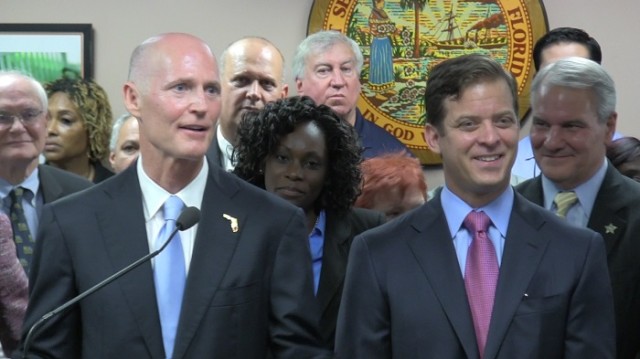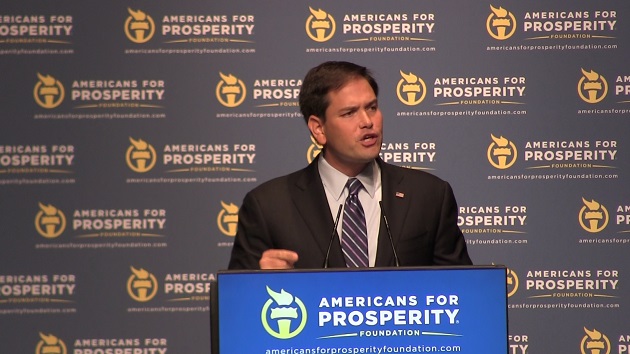Will Florida’s 67 School Districts empower parents to decide what their children learn, or not?
During the 2014 session the Florida legislature passed, and Governor Rick Scott signed into law, Senate Bill 864. SB 864 took effect on July 1, 1014. All 67 of Florida’s school districts are now in the process of implementing the provisions of this bill. However, some question whether the bill’s intent, to empower parents and stakeholders, will be fully realized.
Sherri Krass, founder of Eye on U.S. Education (EUSE), has done an analysis of SB 864. Krass writes:
Senate Bill 864, sponsored by Senator Alan Hays, initially stated that all counties SHALL create an “instructional materials committee” consisting of parents and teachers. The word SHALL dictates that this must be done. Parents would be able to provide input into the approval of the textbooks used by their children.
Unfortunately, by the time the bill left the House and a “compromise” was agreed upon, the body of the legislation was “hollowed out” – where only a “skeleton” remains of the original legislation. The legislation now states:
(2)(a) If a district school board chooses to implement its own instructional materials program, the school board shall adopt rules implementing the district’s instructional materials program which must include its processes, criteria, and requirements for the following, but need not be limited to: 1. Selection of reviewers, one or more of whom must be parents with children in public schools.
Therefore, the creation of such a committee falls within the domain of each County School Board. They can choose to not have one.
The legislation does provide an “opening”. Parents can still insist on a committee being formed.
A date is provided when School Boards have to “certify” the instructional materials. Textbooks must align with the “Florida Standards” – a pseudonym for “Common Core”.The district school superintendent shall certify to the department by March 31 of each year that all instructional materials for core courses used by the district are aligned with applicable state standards.
But, parents can still reject a textbook and insist on another one. Textbooks can be found that align with the “Standards” and are not specifically written for “Common Core”. A major problem with “Common Core” are the textbooks that have been published for it. Rejecting these textbooks is a step forward in removing its influence.
Question: Will every school district empower parents and let them decide what textbooks and instructional materials are best suited for their children?
There are several indicators of a school district’s intent to empower parents and stakeholders in the adoption of textbooks and instructional materials.
- The establishment of a district Instructional Materials Committee, codified in district policy;
- Who selects the committee members, the Superintendent or School Board;
- The makeup of the committee (e.g. do parents or district staff have the majority of votes on the committee);
- Has the district established a fair and equitable process whereby parents can file a complaint directly to the local District School Board requesting rejection of a committee educational materials selection.
I asked Lori White, Superintendent of the Sarasota County Schools, if an Instructional Materials Committee would be formed and if so, when? Here is Superintendent White’s reply:
It is our intent to continue to participate in the state adoption process as outlined in the School Board policy 4.21. Our current policy requires that one or more laypersons participate in the district council. In most cases, these community members are parents with children in the system. Our School Board policy will be revised to incorporate the new requirements outlined in SB 864 regarding the process for a parent to protest the School Board’s decision to adopt a specific instructional material.
Krass wants to make sure parents are empowered and has asked Floridians to sign a petition stating so to Governor Scott and Florida’s legislators. Krass states, “EUSE suggests that a petition be submitted to each County School Board stating that parents want an ‘instructional Materials Committee’ to be formed.”
Krass has an online petition asking the Florida legislature to amend SB 864 to “require” that school districts establish a district Instructional Materials Committee. Interested citizens may sign the petition by clicking here.








